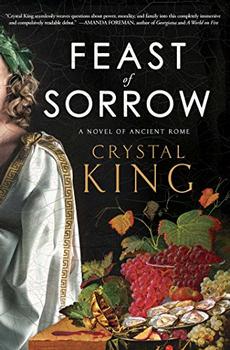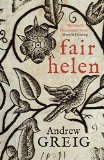Summary | Excerpt | Reviews | Beyond the book | Read-Alikes | Genres & Themes | Author Bio

A Novel
by Paul KingsnorthHistory, it is said, is written by the winners. But historical fiction often celebrates the losers – at least those whose stories have been eclipsed (or, more accurately, erased) by the victor's narrative. And it is often these voices that help us understand more fully the significance of past events, resurrecting their time-entombed storylines and re-mapping their culture-shaping shockwaves.
Such is most definitely the case with The Wake, set in England in the years during and just after the Norman Conquest of 1066. This historical novel recounts the immediate aftermath of the victory of William the Conqueror at the battle of Hastings and the campaign of repression, property theft, and enslavement carried out by the French Knights who helped assure his bloody victory. Arguably the most significant event in ancient English history, the conquest upended the lives of generations of landowners and farmers, and resulted in a seismic dislocation of social status and norms.
Readers can hear the voice of those most affected by the tumult of this historical upheaval through a language that the author invented expressly for The Wake — one he labels "shadow tongue." It's an attempt to convey the feel, the blunt force rhythm of Old English, while still being understandable to a contemporary audience. The protagonist, a rugged farmer and once-privileged freeman named buccmaster (whose name is in lowercase throughout, in keeping with the practice of Old English proper nouns) narrates the novel in this "shadow tongue."
The experience of puzzling out buccmaster's dated-but-still-familiar voice – at first haltingly but then with greater confidence – leaves the reader (at least this reader) deeply affected. Even hundreds of pages in, it is still fresh, weirdly involving, and challenging enough that one cannot race through this narrative, urgent as the page-turning tale is.
A sample of this hybrid language can give the flavor – though it is an acquired taste so don't be put off. The following exchange from early in the book encapsulates much of the novel's profane charm and orthographic groove. It takes place when buccmaster and a neighbor named ecceard are discussing among a small group of farmers whether to answer English King Harold's summons to fight the French:
buccmaster saes ecceard this man is sent from the cyng to holland. herald cyng is callan out the fyrd from the folk of this scir as you cnawan is his right by anglisc law. herald cyng he calls all anglisc men fit and of foehtan age to cum to him for angland...
i saes fucc the cyng but so ecceard only colder hiere and he locs at me then in sum ire and saes naht and teorns and walcs with the fyrd down the path and naht more he specs.
The Wake's patter brings us closer to the world of buccmaster and his contemporaries as they try to get their minds around the cataclysm of violent social upheaval and foreign domination. The odd spelling, the homophonic inversions, and the archaic vocabulary do take a wee bit of getting used to, but once the reader's eye and ear are acclimated to the language, one's mind is free to engage with the story, which is beautiful and dark. Well, mostly dark.
Buccmaster is an extraordinarily original fictional character, at once naïve and brutal. Sleeping in the forest and killing animals with his bare hands, he is almost primitive in his behavior yet deeply spiritual in his yearnings and fatally yoked to fanciful notions of England's heroic, misty past. Likely based on a real-life rebel known as Hereward the Wake ("wake" meaning "watchful" in Old English), he speaks for the best of England, its history and tradition as he understands it. Yet he is positively feral in his conduct with his wife (whom he regularly beats when she displeases him) and his small band of followers who have joined him because of his brute strength and savvy surviving in the wild after their villages were burned and destroyed by the conquering French.
In a brief "Note on Language, the author states: "the vast majority of the vocabulary of this novel consists of words that, in one form or another, existed in English 1,000 years ago." For a book with such a self-imposed limited vocabulary, buccmaster's thought-scape is gargantuan: theology, honor, romantic love, duty, nature, time, death, social order, and salvation all grope for expression amid the clash of swords and wills in 11th century England. Part of the satisfaction resides in watching buccmaster grope with concepts that seem beyond his comprehension. He hates Christianity, but not because he disbelieves, or rejects its tenants: no, he hates it because the priests and bishops speak of something so far removed from the earth, an afterlife that is too abstract to be meaningful. He understands nature worship, and sacred burial mounds, and visitations in dreams, and animal spirit omens. His musings on social order, and his disdain for French royalty, derive not from a sense of egalitarianism but from a wish to return to his somewhat privileged position in society. His concept of love collides with his experience of lust, causing him to consider his wife merely property and his sister as suitable for physical coupling.
He is an unreliable narrator in an uncertain moral landscape, crippled in his quest for justice by notions of medieval honor, gross misogyny, and warped animism. He's not smart enough to understand the answers to the questions he is smart enough to ask: How could things have gone so wrong so quickly? What was wrong with the way things were? Why haven't the gods intervened to stop this? Why are so many English so passively accepting this domination? What gives anyone the right to dominate someone else? Is permanence an illusion? He claims he wants to do the right thing, but his notion of right is almost always wrong. Buccmaster puts the err in Merry old England.
The Wake is a splendid book, a sort of mash-up between Grimm's fairy tales and James Joyce's Finnegans Wake (which it self-consciously calls to mind through its fractured phoneticism). History may be written by the winners, but this book makes a hero of history's grim casualties, celebrating the valor of the long-vanquished in a language that has morphed from extinct to distinct.
![]() This review
first ran in the October 21, 2015
issue of BookBrowse Recommends.
This review
first ran in the October 21, 2015
issue of BookBrowse Recommends.

If you liked The Wake, try these:

by Crystal King
Published 2018
Set amongst the scandal, wealth, and upstairs-downstairs politics of a Roman family, Crystal King's seminal debut features the man who inspired the world's oldest cookbook and the ambition that led to his destruction.

by Andrew Greig
Published 2016
Elderly narrator Harry Langton looks back on the adventures and friends of his youth, transporting the reader to the Scottish Borderlands at the end of the 16th century...
Your guide toexceptional books
BookBrowse seeks out and recommends the best in contemporary fiction and nonfiction—books that not only engage and entertain but also deepen our understanding of ourselves and the world around us.